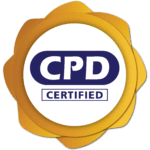



Overview
Reason For Choosing Our Medical and Clinical Administration Bundle Course?
- The course is self-paced and accessible from anywhere.
- High-quality study resources that are simple to understand.
- Experts in the industry created the course.
- After each module, an MCQ quiz will test your knowledge.
- Assessment results are generated automatically and instantly.
- Support is available around the clock by live chat, phone call, or email.
- You will receive a free PDF certificate as soon as you finish the course.
Requirements for Admission
This bundle course has no requirements because it does not need any advanced knowledge or abilities. Students who want to take this course must complete the following requirements:
- Good proficiency in the English language
- Must be energetic and self-driven
- Basic computer knowledge
- A minimum of 16 years of age is needed
Assessment Procedure
You will get automated MCQ quizzes after finishing each module of courses. To go to the next module, you must finish the quiz activity and score at least 60%. You will be eligible to obtain certification once you have completed all of the courses in this manner.
Certification
Unified Course will deliver you a Certificate of Completion once you complete this MCQ exam. It will serve as documentation of your considerable professional progress. The certificate is in PDF format and may be downloaded for free. On request, a printed version is also available. It will also be sent to you through courier for £13.99.
Curriculum
Module 01: Introduction to Medical and Clinical Administration
Module 02: Organise Schedules
Module 03: Maintaining Medical Records
Module 04: Effective Filing Systems in Medical Offices
Module 05: Confidentiality in a Medical Environment
Module 06: Controlling Stocks and Supplies
Module 07: Medical Jargon and Terminology
Module 08: Maintaining Workplace Safety
Module 09: Information Technology in Health Care
Module 10: Medical (Clinical) Coding and Billing
Module 01: The National Health Service
Module 02: Patient (Customer) Care
Module 03: Communication
Module 04: Law, Ethics and Medicine
Module 05: Health & Safety in a Clinical Environment
Module 06: Practical Reception Skills in General Practice
Module 07: The Hospital Service
Module 08: Private Medicine
Module 09: Forms, Fees and Finances in General Practises
Module 10: Using Information Technology
Module 11: Medical Terminology and Clinical Aspects
Module 12: Audit, Health Economics And Ensuring Quality For The Medical Receptionist And Secretary
Module 13: Complementary Medicine
Module 01: Overview of Medicine Management
Module 02: Significance of Medicine Management
Module 03: The Best Way Medicine Can be Prescribed
Module 04: Common Issues in Pharmacological Management
Module 05: Administering Common Medicines
Module 06: Defining Palliative Care
Module 07: Medicine Optimisation and its Four Principles
Module 08: Handling Medication in Residential Aged Care Facilities (RACFs)
Module 09: Law and Legislation Concerning Medicines
Module 01: An Overview of Pharmacy Assistant and Technician
Module 02: Understanding the Pharmacy Assistant Patient Counselling Guide
Module 03: Understanding Communication in Pharmacy Settings
Module 04: Understanding the Pharmacy Team and Practices
Module 05: Understanding Prescription and Dispensing in Pharmacies
Module 06: Understanding Dispensing Methods, EPS, Minimising Dispensing Errors in Pharmacies
Module 07: Understanding Inventory Control and Management in Pharmacies
Module 08: Understanding Standard Operating Procedures (SOPs)
Module 09: Understanding Health and Safety Risks Assessment and Pharmaceutical Terminology
Module 01: Introduction to the UK Healthcare System
Module 02: Healthcare Assistant’s Responsibilities
Module 03: Confidentiality & Patient Health Records
Module 04: NHS Records Management
Module 05: Health And Safety Risks In The Healthcare Sector
Module 06: Hygiene In Nursing
Module 07: Infection Control In Healthcare Setting
Module 08: Mobility and Immobility
Module 9: Medical Jargon and Terminology
Module 10: The Impact of Covid-19 on Mental Health And Human Rights
Module 11: Quality In Health And Social Care
Module 01: Understand the Role of the Healthcare Worker
Module 02: Communication Skills for Working in the Health Sector
Module 03: Personal Development in the Health Sector
Module 04: Health, Safety and Security in the Health Sector
Module 05: Understand Quality Standards in the Health Sector
Module 06: Equality and Diversity in the Health Sector
Module 01: Understand Medication and Prescriptions
Module 02: Supply, Storage and Disposal of Medication
Module 03: Understand the Requirements for the Safe Administration of Medication
Module 04: Record Keeping and Audit Processes for Medication
Module 01: Healthcare Management
Module 02: Role of the Healthcare Manager
Module 03: Organizational Behaviour and Management Thinking
Module 04: Quality Improvement Basics
Module 05: The UK Healthcare System
Module 06: The Health and Care of Older People in England
Module 07: Child Health Care
Module 01: Understand how to work in end-of-life Care
Module 02: Understand how to provide support to manage pain and discomfort
Module 03: End-of-life care and dementia
Module 04: Understanding the role of the care worker at the time of death
Module 05: Understand loss and grief in end-of-life Care
Module 01: Introduction
Module 02: Managing Incident at Workplaces
Module 03: Treating Secondary Injuries
Module 04: Resuscitation (CPR)
Module 05: Secondary Illness and Conditions
Module 06: Additional Secondary Illness and Conditions
Module 07: COVID 19 Awareness
Module 01: Paediatric First Aid: An Overview
Module 02: Principles & Role of a First Aider
Module 03: First Aid Basics
Module 04: Assessing the Situation and Provide Assistance
Module 05: Conducting CPR
Module 06: Tackling Common Illnesses, Injuries and Incidents
Module 07: Combat Severe Medical Situations through First Aid
Module 08: How to Face the Crisis?




